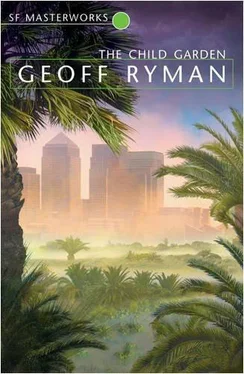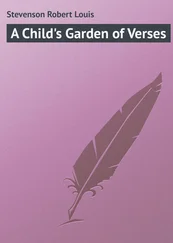And Milena remembered meeting Max.
Max was the conductor of one of the Zoo orchestras. He could orchestrate music. He could orchestrate the Comedy.
Milena remembered standing in his chilly office, when was it? Late November, the November after Rolfa had gone. Max sat behind a huge, black desk. The desk was meant to intimidate, Milena was certain of that now.
Max was looking through the great, grey book. He was unhurried. He was not speaking to or looking at Milena. He was like some swollen little boy: round, fat and smooth. The oils on his forehead reflected the windows of his room. His green-blond moustache masked his purple mouth. His mouth needed masking. It seemed to curl in scorn, but was somehow too pretty at the same time. It made him look petulant. Through the airy linen of his shirt, Milena could see that his breasts were pendulous with fat. Milena stood with her arms folded and looked at the room.
The floor was bare concrete, and the shelves were empty, except for a green glazed pot with some kind of dried twig protruding artistically from it. The walls were painted white and were hung with framed sheets of music, safe behind glass, like paintings. By Max’s elbow, as if he were just about to begin composing, there was a sheaf of perfectly stacked, ruled paper and a very sharp pencil. Though it was November, two charcoal hibachi kept the room stifling hot. It was so airless, that Milena felt giddy. She needed to sit down, but there was no chair for guests.
‘Hmmm,’ said Max. He finally looked up at Milena and fixed her with the swimming, glassy look of someone whose corneas have been replaced. ‘Yes,’ he said in a very flat, precise, but muted voice.
‘Yes?’ repeated Milena. ‘Does that mean yes, you’ll do it?’
‘Yes,’ he said again.
Milena was taken aback. It was too simple, just to have him say yes. ‘But how? When?’ she asked, trying to inject into her voice the joy she thought she should be feeling.
‘Well,’ he said, in the same detached, quiet voice. ‘It’s a big job. I can’t say when. I really need to look at the whole thing some more.’
So did he really mean yes? Already Milena felt a confusion, somewhere. ‘So you need some time still to look at it.’
He made a totally meaningless gesture, a shrug that looked like some kind of deprecation. What was being deprecated? The time he still needed to make up his mind? The importance of what he was asking — no big thing?
‘Do you want to keep the book?’ Milena asked. ‘It’s just I’m a bit chary still of letting it out of my sight. There’s been no time to write it all out again somewhere else. That’s the only copy.’
‘I’ll be needing it,’ he said.
‘If it’s just a question of looking at the music to see if it’s worthwhile, there is a copy of most of the main themes.’
He looked back at her without answering. Was he terribly insulted? Finally he said, ‘I will be needing the book.’
‘Of course,’ said Milena. She had to tell herself: the book is not yours now, Milena. It belongs to everyone now. It has to fly by itself. ‘Fine. By all means,’ she said.
And she thought: so why don’t I feel happy?
‘Well I guess that’s it.’ Milena tried to be generous. ‘I guess I wasn’t expecting you to be interested. I’m very pleased.’ She smiled, but there was no response in Max’s face. This was unnerving. Milena found that she did not quite know how to leave. ‘You’ll let me know, then?’
‘Yes of course,’ he replied. He turned to his pile of blank paper and began to tap its sides, as if something were out of order.
Weeks, thought Milena. That’s all I’ll give him. Two weeks. She looked about the office. At least it seemed organised and workmanlike.
‘Then goodbye,’ she said.
‘Yes,’ he replied, without looking at her.
It took a month to find him again.
She left messages at the music desk. She found his Postperson.
‘Oh him,’ said his Postperson. ‘You’ll be lucky. I can never find him myself, and if he ever sends messages he never sends them by me. What was your name, love? And your message?’
Max had the only forgetful Postperson Milena had ever met. That seemed to explain things. She visited his office and found it empty. She knocked on his door in the Three Eyes, where the musicians lived, but there was no answer.
Finally she went to one of Max’s performances. She waited outside the concert hall, looking at the patterns in the varnished wood panels on the walls. Long after the audience was gone, Max emerged, holding the door open for a very tall, serious-looking woman. She was carrying a violin case, and nodding at something Max was saying.
Milena drew herself up next to them. Max ignored her. He kept talking about orchestra business; how to divide the orchestra’s earnings fairly. The violinist kept giving Milena speaking looks, tight-lipped, steady-eyed. Finally she said, ‘Excuse me, Max,’ and addressed Milena. ‘I’m sure you must find listening to our conversation terribly dull. Perhaps you could talk to Max later.’
‘I would love to talk to Max later, but we keep missing each other. Max, have you been able to make up your mind about the Comedy yet?’
‘I’m afraid not,’ he said, and tried to turn back to the violinist.
‘Do you think you could let me have the book back, so I can make a copy?’
‘Please!’ he said turning to her. He looked harassed, piteous, as if she had been hounding him. ‘You are asking rather a lot. Let me look at it, and I will let you know.’
Milena felt her jaw jut out. ‘You have had a month, Max. I don’t think that’s rushing you.’
‘I will let you know soon. Please give me some time, and please let me continue talking to my colleague.’
All right. For now, all right. ‘I shall try to see you in a week or two’s time,’ she warned him.
Sometime in early January, she visited him in his office. Winters were getting cold again. There was cold grey light coming in from the windows, but the room was still stiflingly hot. Max looked up in alarm when Milena came in. He was sitting at his desk, arms folded, hands buried in his armpits as if to stop them doing something. He’s sitting here doing nothing, Milena thought. ‘Hello, Max,’ she said quietly. ‘Have you made up your mind yet?’
His face was frozen. His mouth gaped open, with a kind of twist in its slackness. Milena realized that Max was trying to smile and couldn’t. He dreads me, she thought, he dreads me coming. I am the least welcome thing that could happen to him. Well, Max, say yes or no, and either way I’ll let you alone.
‘Max,’ she repeated. ‘Have you made up your mind?’
‘Yes,’ said Max, in an unconvincing imitation of firmness. ‘Yes, I have. I think the material is very good. It does require, a lot, a lot of work. But I’ll be happy to do it for you.’
‘Fine. Thank you Max.’
‘It will take some time.’
‘I’m sure of that, Max. But we don’t need a full orchestration. I think just the first canto will be enough to show the Minister what we want to do. So. I have brought you all the vocal line for the first canto.’ She had reconstructed it from memory, it was such a part of her life. She passed it to him, all tidy on staves. ‘Now, could I please have the book back?’
‘It isn’t here, Milena.’
‘I realize that, Max. It’s a big book. I’d see it if it were here. When can you get it to me?’
‘I will send it to you tomorrow.’
‘I will expect to see it. This is a major project, Max, and we have to begin thinking in terms of time. The Minister will want to see a schedule.’
He began patting his blank paper again. ‘He shall have one.’
‘I will need one, too,’ said Milena.
Читать дальше












